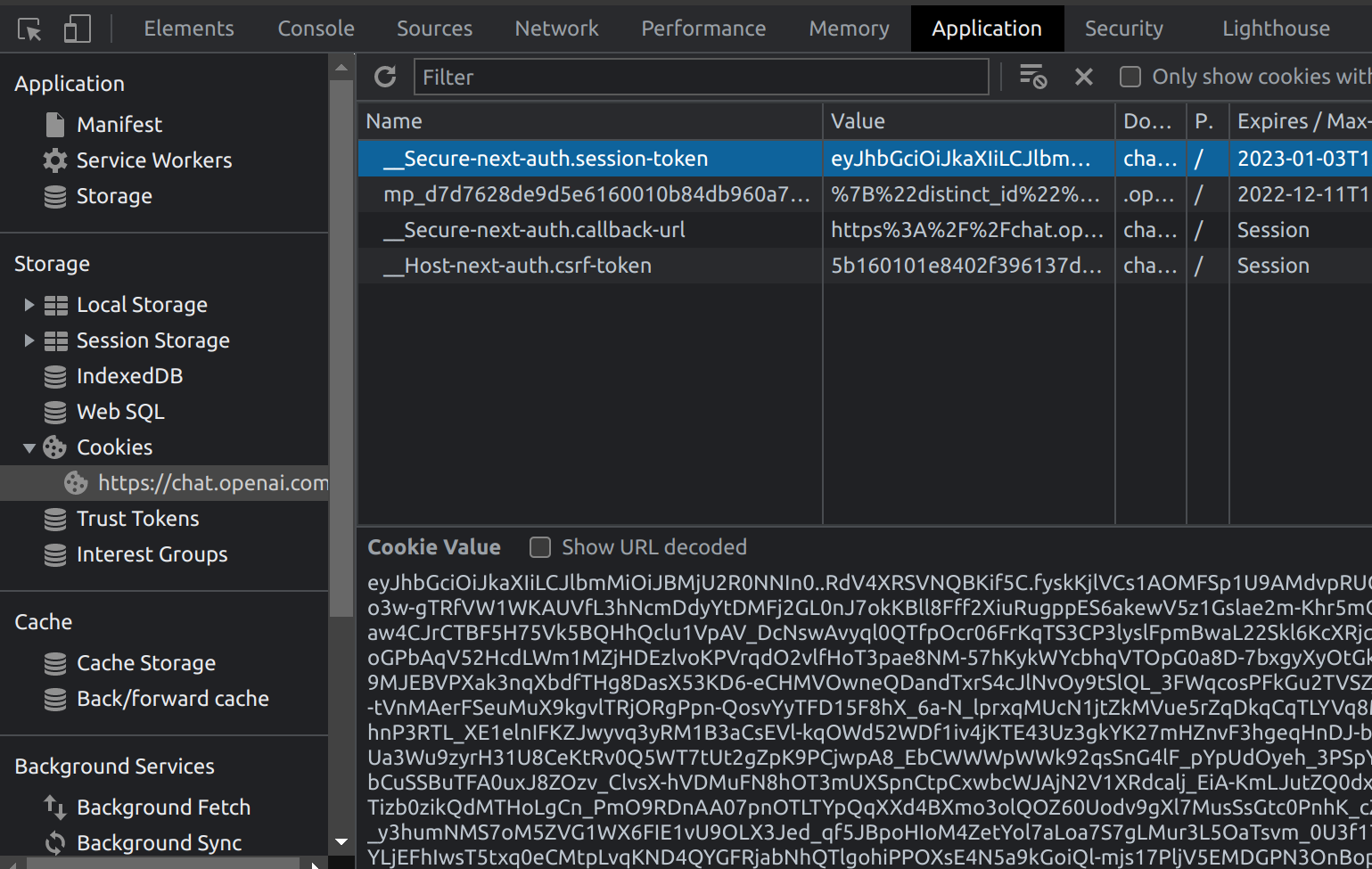Reverse Engineered ChatGPT by OpenAI. Extensible for chatbots etc.
This is not an official OpenAI product. This is a personal project and is not affiliated with OpenAI in any way. Don't sue me
The CLI functionality is for demo and testing only.
@rawandahmad698 has a much better CLI tool at
- Writing tests
- More verbose error handling
- Decrecate bs4 in favor of pure requests
- No moderation
- Programmable
pip3 install revChatGPT --upgrade
{
"email": "<YOUR_EMAIL>",
"password": "<YOUR_PASSWORD>"
}Save this in config.json in current working directory
Legacy authentication or if using Google Auth
Go to https://chat.openai.com/chat and log in or sign up $ python3 -m revChatGPT
ChatGPT - A command-line interface to OpenAI's ChatGPT (https://chat.openai.com/chat)
Repo: github.com/acheong08/ChatGPT
Arguments: Use --stream to enable data streaming. (Doesn't work on MacOS)
Type '!help' to show commands
Press enter twice to submit your question.
You: !help
!help - Show this message
!reset - Forget the current conversation
!refresh - Refresh the session authentication
!exit - Exit the program
Refresh every so often in case the token expires.
pip3 install revChatGPT --upgrade
from revChatGPT.revChatGPT import Chatbot
import json
# Get your config in JSON
config = {
"email": "<YOUR_EMAIL>",
"password": "<YOUR_PASSWORD>"
}
chatbot = Chatbot(config, conversation_id=None)
chatbot.reset_chat() # Forgets conversation
chatbot.refresh_session() # Uses the session_token to get a new bearer token
resp = chatbot.get_chat_response(prompt, output="text") # Sends a request to the API and returns the response by OpenAI
resp['message'] # The message sent by the response
resp['conversation_id'] # The current conversation id
resp['parent_id'] # The ID of the response
# This returns a stream of text (live update)
resp = chatbot.get_chat_response(prompt, output="stream")
for line in resp: # You have to loop through the response stream
print(line['message']) # Same format as text return type
...This can be imported to projects for bots and much more. You can have multiple independent conversations by keeping track of the conversation_id.
If you have a cool project you want added to the list, open an issue.


